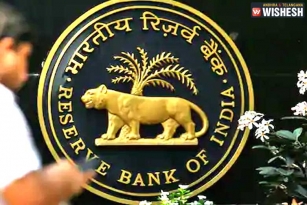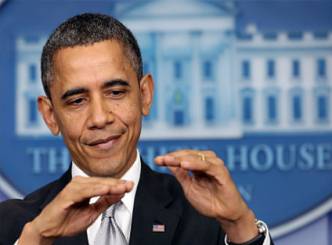
 On thursday World stocks dropped on continuing economic confusion and fears of a double-dip recession.Well India's sensitive index Sensex nose-diving 704 points (4.13 per cent) at close has crashed Asian markets,and Dow Jones and FTSE 100 extended massive losses amid warnings about the Greek-Eurozone crisis and the failure of the US Federal Reserve to restore confidence with a $400 billion (Dh1.47 trillion) boost to the economy. The Dubai market was slightly down and Abu Dhabi was flat on the day.
On thursday World stocks dropped on continuing economic confusion and fears of a double-dip recession.Well India's sensitive index Sensex nose-diving 704 points (4.13 per cent) at close has crashed Asian markets,and Dow Jones and FTSE 100 extended massive losses amid warnings about the Greek-Eurozone crisis and the failure of the US Federal Reserve to restore confidence with a $400 billion (Dh1.47 trillion) boost to the economy. The Dubai market was slightly down and Abu Dhabi was flat on the day.
The S&P 500 fell 3.5 per cent to 1,126.26 at 12.10pm in New York (8.10pm UAE time), poised for the longest slump since August 2. The Dow Jones Industrial Average fell 419.40 points, or 3.8 per cent, to 10,705.44, reports said.
Although markets have been volatile for weeks, economists told Gulf News last night that the spectre of a double-dip recession was more alive than ever."We've forecast a 50 per cent chance of a recession over the next 12 months and I'd say it's probably more like 60 to 70 per cent now," said Gary Dugan, chief economist at Emirates NBD.Europe outlook worse.
"We're going to see more companies delaying announcements and job openings and those companies are going to start losing staff.
They remember what happened in 2007 to 2009 and now they're saying we've got to batten down the hatches."Simon Williams, chief economist at HSBC, agreed that the outlook was dark."The financial markets are telling you that the European outlook is significantly worse then they had anticipated just a few days, let alone weeks ago," he said.
Williams said that although world leaders were due to meet over the weekend at the Group of 20 economically significant countries (G20), he was sceptical that it would serve to reduce the market declines."I would be surprised if anything of substance comes out of it," he said. "There are relatively few policy options still available to them."On Wednesday, the Fed said a complete economic recovery was still years away, adding that the US economy has "significant downside risks to the economic outlook, including strains in global financial markets."
On Thursday Investors on Wall Street and around the world sold stocks with back out,more convinced than ever that the United States and perhaps the globe are headed for a new recession.One financial indicator after another showed that investors are quickly losing hope that the economy can keep growing. The price of oil and metals, both of which depend on economic demand, fell sharply. Traders bought bonds for safety."Markets rely on confidence and certainty. Right now there is neither," said John Canally, an economic strategist at LPL Financial, an investment firm in Boston.
Economic news was bad around the world. A closely watched survey in Europe indicated a recession could be on the way there, and a manufacturing survey suggested a slowdown in China, which has been one of the hottest economies.Christine Lagarde, the head of the International Monetary Fund, said the world economy was "entering a dangerous phase." She told an annual meeting of the IMF and World Bank that nations need credible plans to get their debt under control.
By early afternoon, the Dow was near the low of the day, on what was shaping up to be one of its worst days of the year. At 3 p.m. EDT, the average was down 425 points, or 3.8 percent, at 10,699.The Dow's lowest close this year is 10,719 on Aug. 10. The Dow has fallen more than 15 percent in two months, since traders began focusing on recession fears and the market was gripped by volatility.
The yield on the 10-year Treasury note hit a record low of 1.71 percent, down from 1.86 late Wednesday. Yields fall as investors buy bonds and send their prices higher.The Fed, adopting a new strategy to try to get the U.S. economy going, announced Wednesday that it would shuffle $400 billion of its own holdings in hopes of reducing interest rates on long-term loans.
The central bank hopes that allowing people and businesses to borrow money more cheaply will encourage them to spend it throughout the economy, providing a lift that could turn it around.The Fed statement troubled investors. It offered a bleak assessment of the future of the U.S. economy, saying it sees "significant downside risks to the economic outlook," including volatility in overseas markets.
The price of commodities like oil and metals dropped steeply because investors worried that demand for them would fall if the world economy keeps slowing or falls into recession again.Oil dropped more than $5 a barrel to $80.51, its lowest settling price since Aug. 9. The selling reflected concerns that world demand for oil would fall if the economy slows.
Michael Lynch, president of Strategic Energy & Economic Research, pointed to the dark outlook from the Fed and to a rare public warning by the chief economist of the European Central Bank that heavy government debt threatened the euro, the currency shared by 17 European nations.Silver fell 9.6 percent, and gold fell 3.7 percent. Earlier this summer, gold set one record high after another. Investors wanted it both as a safe place for their money and to cash in on what seemed an unstoppable run.
Chris Rupkey, chief financial economist with Bank of Tokyo-Mitsubishi, wrote in a report Thursday.The U.S. economy grew at an annual rate of 0.7 percent in the first half of this year, the slowest growth since the end of the Great Recession in June 2009. It would take much healthier growth, 4 or 5 percent, to bring unemployment down significantly.The data suggest that constant gloom surrounding a debt crisis among European nations is causing people and businesses to cut back on spending, which could push the region into recession.
Asian stocks were hammered to start the world's trading Thursday. The Nikkei index in Japan fell 2.1 percent. The main stock averages fell 2.9 percent in South Korea, 2.6 percent in Australia and almost 5 percent in Hong Kong.Europe fared even worse. The stock market fell 5.3 percent in France and 5 percent in Germany. Besides the economic headache, Europe is wrestling with how to tame a big debt problem.
In the U.S., FedEx stock fell 9 percent after it said that it would earn less in 2012 than it had expected. The company is seen as an indicator because demand for shipping rises and falls with the economy.The next big round of corporate earnings reports doesn't start for several weeks, but many analysts expect big companies can't sustain the strong profits they have posted for the last few quarters.























